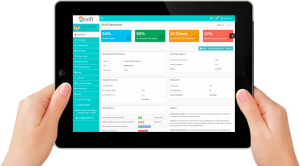How Do Mutual Funds Work?
A mutual fund is a company that pools money from many investors and invests the money in stocks, bonds, short-term money-market instruments, other securities or assets, or some combination of these investments. The combined holdings the mutual fund owns are known as its portfolio. Each share represents an investor’s proportionate ownership of the fund’s holdings and the income those holdings generate.
Characteristics of Funds:
Some of the traditional, distinguishing characteristics of mutual funds include the following:
- Investors purchase mutual fund shares from the fund itself ,instead of from other investors on a secondary market, such as the New York Stock Exchange
- The price that investors pay for mutual fund shares is the fund’s per share net asset value (NAV) plus any shareholder fees that the fund imposes at the time of purchase (such as sales loads.
- Mutual fund shares are “redeemable,” meaning investors can sell their shares back to the fund
- Mutual funds generally create and sell new shares to accommodate new investors. In other words, it sells its shares on a continuous basis, although some funds stop selling when, for example, they become too large.
- The investment portfolios of mutual funds typically are managed by separate entities known as “investment advisers” that are registered with the SEC.
How funds can earn money for you?
You can earn money from your investment in three ways.
- Dividend Payments: A fund may earn income in the form of dividends and interest on the securities in its portfolio. The fund then pays its shareholders nearly all of the income (minus disclosed expenses) it has earned in the form of dividends
- Capital Gains Distributions: The price of the securities a fund owns may increase. When a fund sells a security that has increased in price, the fund has a capital gain. At the end of the year, most funds distribute these capital gains (minus any capital losses) to investors.
- Increased NAV: If the market value of a fund’s portfolio increases, after deduction of expenses and liabilities, then the value (NAV) of the fund and its shares increases. The higher NAV reflects the higher value of your investment.
With respect to dividend payments and capital gains distributions, funds usually will give you a choice: the fund can send you a check or other form of payment, or you can have your dividends or distributions reinvested in the fund to buy more shares.
Wixifiis the only robo investment advisory service in India. It advises you on how to build a well-diversified, continuously rebalanced tax optimized low cost portfolio through a web platform (and mobile app in the future). As very few low cost index funds are available in India Wixifi’s cutting edge technology gives you the exact share count to replicate indices in the lowest cost possible. All products offered are with a view to the core values of the company which are low cost, ethical advice and great technology https://www.wixifi.com/


No comments:
Post a Comment